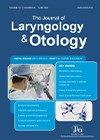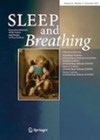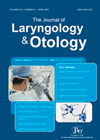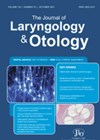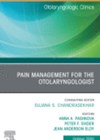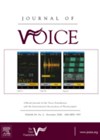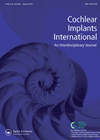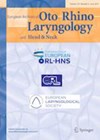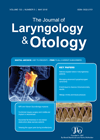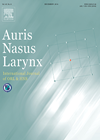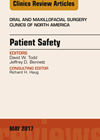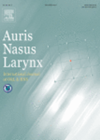
Journal Reviews
Infection and other factors influencing post-tonsillectomy haemorrhage
In this detailed narrative review article, the authors have addressed several factors which could be related to postoperative bleeding after tonsillectomy. As regards to microbiology, the significance of micro-organisms present both on surface and within the tonsils is emphasised and...
Does pregabalin help with post-tonsillectomy pain?
This is a small double-blind randomised controlled trial conducted on tonsillectomy and lateral pharyngoplasty operations. Both of these operations are terrifically painful, and I am sure most of us are looking for a way of reducing the suffering for our...
Postoperative bleeding rates after inferior turbinate reduction using three different techniques
The most serious complication of inferior turbinate reduction surgery is postoperative bleeding, soon after the operation or later on. In this study comprising 751 patients, the authors have compared three common methods. Partial turbinectomy involved resection of the inferior turbinate,...
A more comprehensive management for eosinophilic chronic rhinosinusitis after FESS
In recent years there has been increasing recognition of eosinophilic chronic rhinosinusitis which, in particular, results in persistent symptoms and recurrence of nasal polyps, even after FESS surgery. It therefore calls for measures adjuvant to FESS to stop persistence of...
Pain control for patients with chronic pain following surgery
There is an increasing number of patients with a background of chronic pain presenting to the otolaryngologist. Patients with chronic pain require extra consideration in postoperative pain control due to risk of tolerance and dependence. This article summarises postoperative management...
Complications associated with microlaryngoscopy surgery
Microlaryngoscopy procedures are often considered to be routine procedures at the straightforward end of the ENT operative spectrum. Complications associated with this surgery are thought to be infrequent and primarily related to the possibility of dental trauma and adverse voice...
X-ray vs. intraoperative testing for determining cochlear implant placement
Most cochlear implant centres confirm electrode position after surgery using X-rays to ensure optimal electrode placement. As well as transorbital view X-rays, this team check placement using impedance measures and neural response telemetry (NRT) performed intraoperatively. The former indicates whether...
Tramadol soaked nasal packs for post-septoplasty analgesia
Having had a septoplasty a number of years ago for the potential treatment of snoring, I was intrigued by this paper which compared the analgesic effect of tramadol-soaked and lignocaine-soaked nasal packs following septoplasty. In my practice, I have always...
Predictors of postoperative improvement after endoscopic sinus surgery in patients with chronic rhinosinusitis
Improvement after endoscopic sinus surgery in patients with chronic rhinosinusitis varies considerably. If elaborate preoperative and intraoperative data could be used to predict the postoperative course, management and length of the follow-up could be adjusted to provide optimal care. Two...
Merocel vs Cutanplast Anal packing
This study compared two different nasal dressings after septoplasty. Seventy-six patients acted as their own controls by having one nostril packed with Merocel and one nostril somewhat improbably with Cutanplast Anal (gelatin sponge). It seems that the gelatin sponge was...
Preoperative planning of the surgical patient
This article covers the need to effectively optimise patient status preoperatively to help maximise postoperative outcomes. The article is well written and emphasises close liaison with anaesthetic colleagues particularly regarding airway assessment and nausea and vomiting. As is becoming common...
Power tools dance off
The use of the harmonic scalpel is popular with some head and neck surgeons. This study looked at selective neck dissections for 40 patients with oral cavity carcinoma. They were randomised into harmonic scalpel (HS) use and monopolar electrocautery. The...

